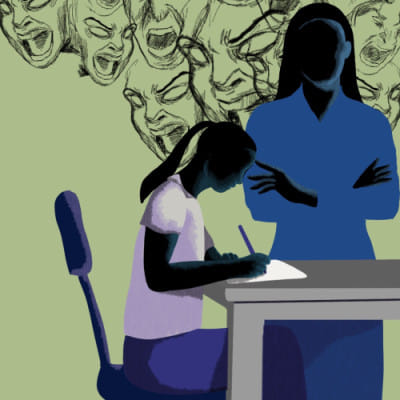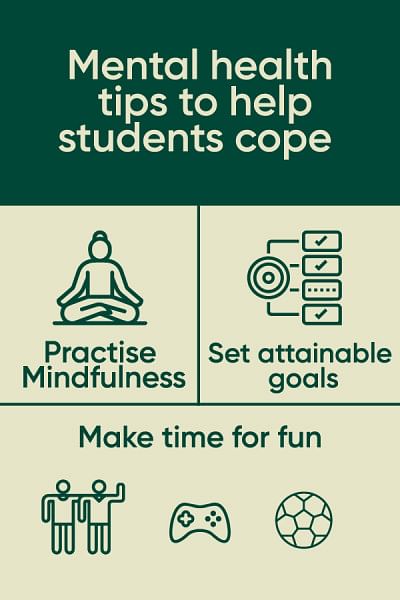Mental Abuse in Schools: An Epidemic Left Unaddressed

"You're so ugly no girl will ever spit on you."
I still remember feeling so small and vulnerable when the teacher casually said this to the boy sitting next to me back in fourth grade. Even though her words weren't directed at me, I couldn't escape the brutal sting of them. And from the sad, deafening silence that had filled the classroom, the feeling of shock and distaste seemed to be commonly shared by my classmates. The unfortunate target of the needless cruelty simply plastered a clearly forced smile on his face and looked down at his desk.

Over the next seven years I spent at my school, these acts of unhinged verbal abuse became so commonplace that my peers and I became completely desensitised to any sense of humiliation. Baseless insults to our character, appearances or even families no longer bothered us because we'd heard enough already and even when teachers or supervisors managed to reach new lows and crumble the emotional walls that we'd put up around us, we wouldn't complain to parents or report them to higher authorities. After all, society had always told us that teachers are incapable of doing their students any harm and if anything, even their harshest words are always well-meant.
Looking back, I consider my friends and I extremely lucky that none of us were ever pushed to a point where we felt utterly helpless and motivated enough to take irreversible decisions because as we see on the news sadly too often, this does turn out to be the case for many students. On August 23 this year, a ninth-grader of Holy Cross Girls School and College passed away after jumping from the 10-story building she and her family resided in. While her unfortunate passing is still being investigated, friends have said that a teacher had given her poor marks in higher mathematics for not attending their private lessons outside of school and the teacher was planning on talking to her parents a few days after. Rokeya Begum, a teacher of the school, on the other hand, has vehemently denied any extreme reaction of the teacher and instead diverted the discussion to the student's weak academic performance, implying she brought all the stress and the tragedy on herself.
This incident closely resembles what had happened to Viqarunnisa Noon School and College student Aritry Adhikari in 2018. Adhikari too was a ninth-grader when she was caught cheating in an exam. School authorities called on her parents the same day and insulted them while also stating that she would be expelled from the school and barred from sitting for her final exams before that.

What school authorities and parents need to understand is that there is a reason why children cheat or take desperate measures when they perform poorly on exams – they are conditioned into equating their self-worth and their parents and teachers' respect for them with good grades from very early stages of their childhood. I still remember how terrified my friends from a different section were of their geography teacher because she'd fling their copies on the floor if they missed a single comma on their notes in third grade. It's these seemingly little aggressive actions of teachers and superiors at school, and society's blind trust and respect for whatever they do, that drive children to the deepest pits of anxiety and fear at ages when they should be the happiest and feel loved and safe.
An overly strict and mean-spirited environment does not only make students forget the true value of learning and view academics as a means to achieve the dignity and love they are entitled to naturally, but it can also potentially make students struggle with self-expression and identity.
As Novera Kaiser*, a former student of Mastermind School, recounts, "I remember the female teachers slut-shaming female students all the time and male teachers being creepy sometimes. Students would be asked why the colour of their undergarments were visible through their white shirts or salwar-kameez. Female students as young as 12 were slut-shamed for 'laughing and mixing with boys' during break periods. I also remember one teacher telling a student that she should just discontinue her education and focus on getting married because the only reason she came to school was to look pretty and talk to boys. One female student once complained to the admin about some sexual comments she had received but the admin's response was, 'Get used to it because boys are like that.'"
Jameel Morshed*, a twelfth grader based in Chittagong, still deals with the trauma of being severely bullied by teachers and students alike at CIDER International School.

"Teachers would often berate me excessively for mistakes which, now that I think about them, were absolutely fine for a second grader to do. Even small slips in grades were reason enough for them to humiliate in front of everyone in the class and to this day, I struggle with being myself because I'm very scared of being judged by people," he says.
Disciplining students is of course important as young people are more prone to get into trouble as they often do not know any better and they need to be taught that actions have consequences. However, the punishment should always match the mistake in terms of gravity.
There is a fine line between verbal abuse and reasonable verbal discipline and as Nishat Zareen, a teacher at a reputed English medium school in Dhaka, explains, "My choice of words certainly defines the fine line between the two."
But higher authorities at schools usually abuse their position of power over students and speak down to them too often. The reasoning behind this is shared by Sadika Akhter, parent of a recent high school graduate of Maple Leaf International School.

"The teachers of today grew up in a generation that did not even entertain the idea of treating children with respect and demanded extreme submission from them. Even if it hurt then, those teachers and even I, internalised those rules and assumed that was the only and right way to coach children," she says.
But times are changing now. Our generation is the most informed and (rightfully) outspoken generation ever. Students no longer go to school just to learn; schools are now spaces for everyone - students, teachers, staff members - to learn from each other. School authorities should therefore implement discipline regulations that are more mindful of students' humanity while parents should hold the institutions that they are trusting their children with more accountable for their actions. A better future can only come from a better present, which should be now.
*Names have been changed upon request for privacy.
Reference
1. Dhaka Tribune (August 26, 2022). Holy Cross student suicide puzzles police
2. The Daily Star (December 6, 2018). 3 teachers suspended amid outrage
Fabiha is secretly a Lannister noblewoman and Slytherin alum. Pledge your allegiance and soul to her at [email protected]

 For all latest news, follow The Daily Star's Google News channel.
For all latest news, follow The Daily Star's Google News channel. 










Comments